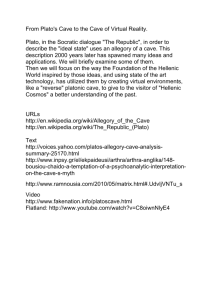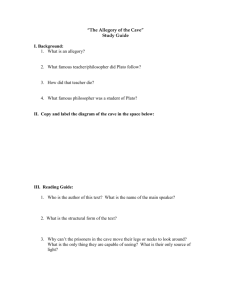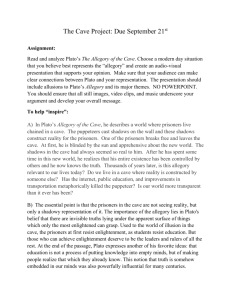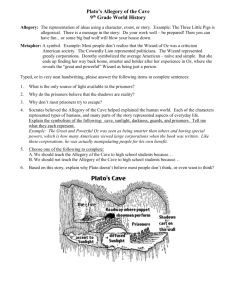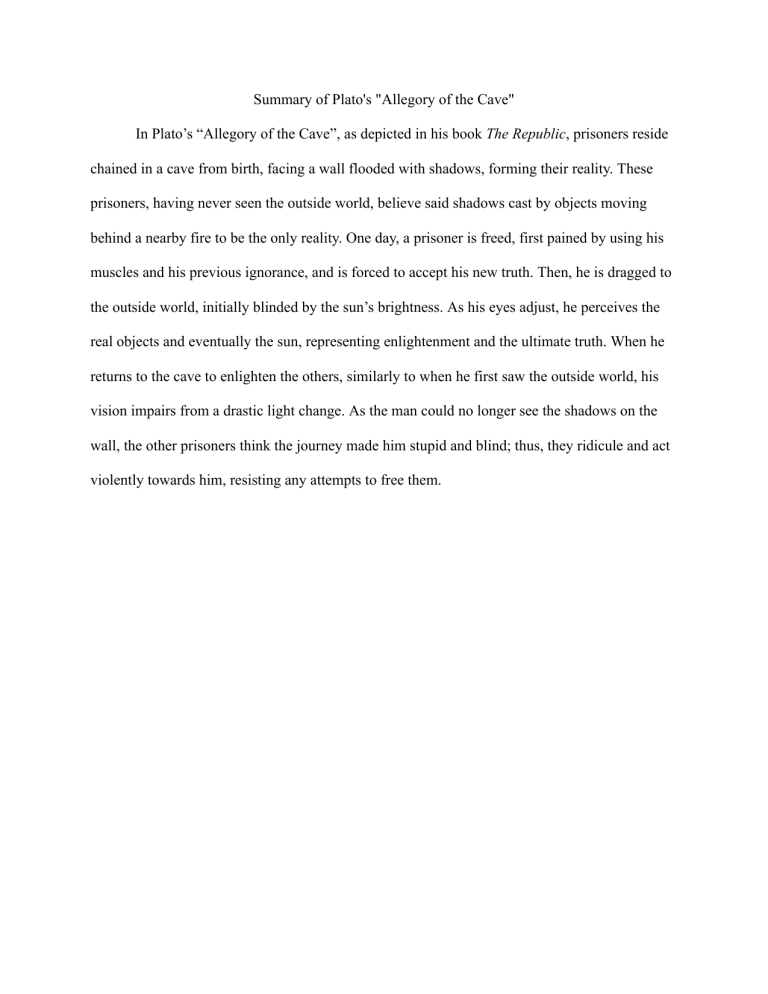
Summary of Plato's "Allegory of the Cave" In Plato’s “Allegory of the Cave”, as depicted in his book The Republic, prisoners reside chained in a cave from birth, facing a wall flooded with shadows, forming their reality. These prisoners, having never seen the outside world, believe said shadows cast by objects moving behind a nearby fire to be the only reality. One day, a prisoner is freed, first pained by using his muscles and his previous ignorance, and is forced to accept his new truth. Then, he is dragged to the outside world, initially blinded by the sun’s brightness. As his eyes adjust, he perceives the real objects and eventually the sun, representing enlightenment and the ultimate truth. When he returns to the cave to enlighten the others, similarly to when he first saw the outside world, his vision impairs from a drastic light change. As the man could no longer see the shadows on the wall, the other prisoners think the journey made him stupid and blind; thus, they ridicule and act violently towards him, resisting any attempts to free them.
